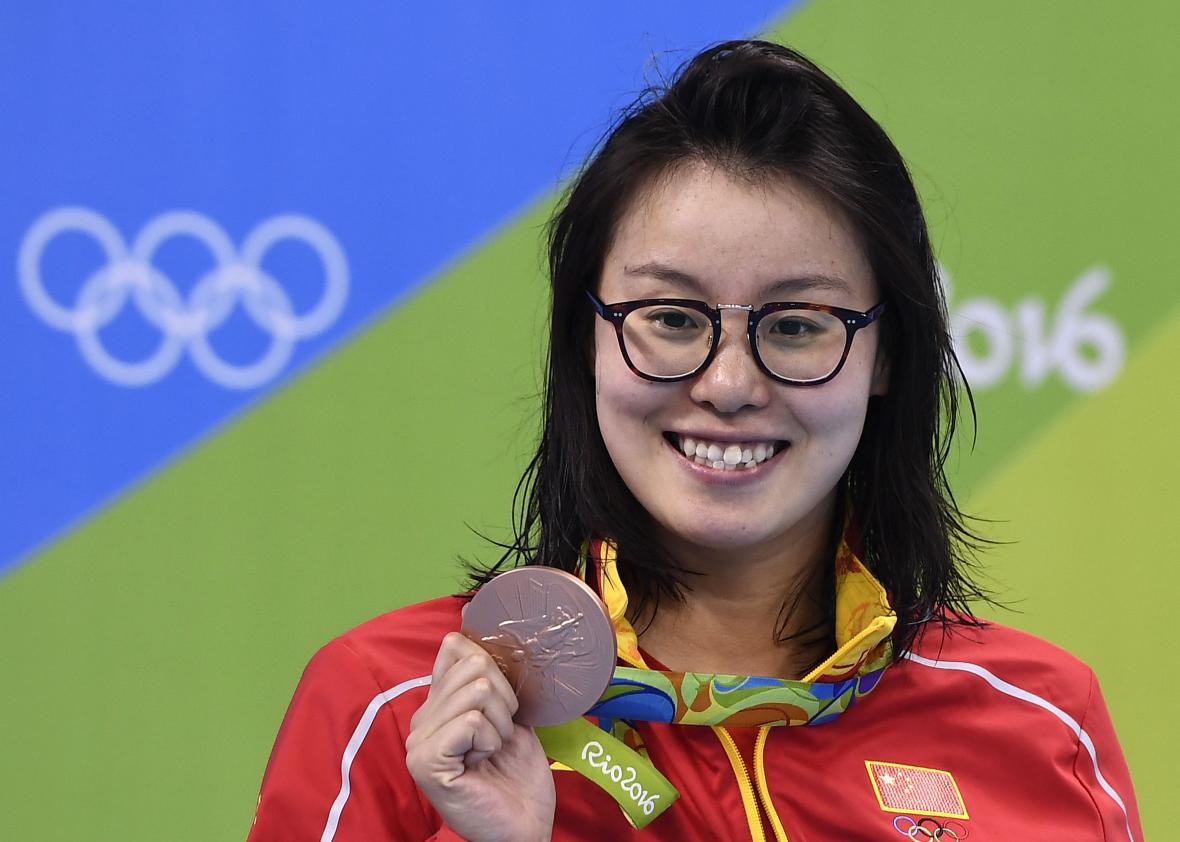On Saturday night, just after her team finished the 4x100 meter medley relay, China’s Olympic swimmer Fu Yuanhui discussed having her period.
The team narrowly missed winning a medal—coming in fourth—and Yuanhui apologized to her teammates because she felt that she didn’t swim as well as she might have. She went on to say that her period started the night before the race, and, as a result, she was feeling pretty weak and tired. “But this isn’t an excuse,” she said. “At the end of the day, I just didn’t swim very well.” The response to the bronze medalist—Yuanhui placed third in the women’s 100 meter backstroke—has been overwhelmingly positive. On a BBC story, one viewer commented: “I really admire Fu Yuanhui, for swimming while she was on her period—women can be affected during their periods, especially with period pain … she felt guilty for coming fourth, but Fu Yuanhui we’re still very proud of you.”
Many journalists are using Yuanhui’s comments as an opportunity to discuss China’s cultural reserve about menstruation—citing the banning of advertisements for feminine hygiene products on TV during prime time and lunchtime as examples. The Guardian even cited a recent study that blames inadequate sex education and a deep-seated cultural resistance for the fact that only about 2 percent of Chinese women use tampons.
Although this is certainly a good moment to comment on China’s cultural reticence around periods, the rest of the world certainly isn’t in the clear—especially when it comes to women in sports. Georgie Bruinvels, a doctoral student in surgery at University College London, recently told VICE that the research conducted on women who exercise is often limited to when those women are at a particular phase in their cycle, when hormone levels are lower and closer to a man’s. Because of these limits in research, we don’t know much about the role that menstruation plays in athletic performance. According to Bruinvels’ own research, women’s periods are often not considered in these studies because that would add too many variables to the data.
Of course, that hasn’t stopped other, seemingly less important, athletic investigations from taking place. Michael Phelps famously slept in a high altitude sleeping chamber to prepare for high-altitude competition, and Novak Djokovic has been known to sit in a pressurized egg—called a CVAC—to stimulate and compress his muscles. At this Olympics, many athletes are using cupping to try and stimulate blood flow despite almost no real scientific proof that it works. It seems crazy that these relatively niche innovations exist in a world where there’s little basic research on how half of the competing athletes’ regular cycles affect their performance. Although it is wonderful and empowering that Yuanhui spoke about her period, hopefully her forthrightness will inspire not just fist-pumping solidarity, but actual research on how to better assist the athletes who have them.
